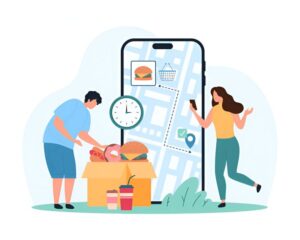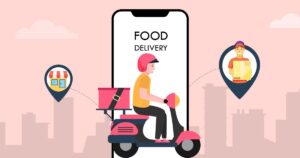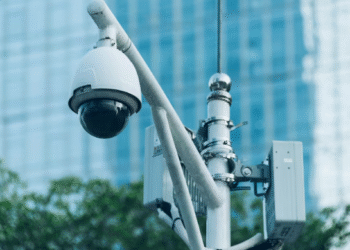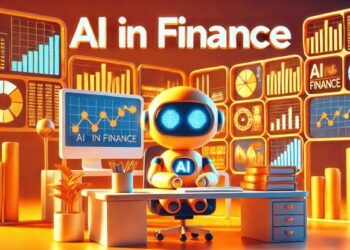Understanding AI’s Role in UAE Food Delivery Excellence
The United Arab Emirates represents one of the world’s most sophisticated food delivery markets. With smartphone penetration exceeding 95% and urban populations expecting instant gratification, food delivery apps in Dubai and across the Emirates face intense competitive pressure. The question “How AI improves food delivery apps” has evolved from theoretical discussion to operational imperative determining market winners and losers.
AI-powered food delivery app developers UAE focus on solving region-specific challenges—extreme summer temperatures affecting food quality, diverse international cuisines requiring cultural understanding, traffic congestion in rapidly developing cities, and consumer expectations shaped by exposure to global best practices. According to Gartner’s Q3 2025 Middle East Technology Forecast, food delivery platforms implementing comprehensive AI capabilities achieve 42% higher customer retention and 38% improved operational efficiency compared to traditional systems.
Food delivery mobile app development with AI transforms basic logistics platforms into intelligent ecosystems that predict demand, optimize delivery routes, personalize experiences, and continuously improve through machine learning. These capabilities directly impact the metrics defining success: delivery speed, order accuracy, customer satisfaction, restaurant profitability, and driver earnings.
Five Critical Ways AI Enhances Food Delivery Performance
1. Intelligent Route Optimization for Dubai’s Unique Geography
AI route optimization for delivery drivers addresses UAE’s distinctive challenges—sprawling urban development, rapid infrastructure changes, weather extremes, and cultural events affecting traffic patterns. Traditional GPS navigation provides static directions; AI-powered systems dynamically adapt to real-time conditions.
Machine learning algorithms analyze historical delivery data across thousands of orders, identifying patterns invisible to human dispatchers. The system learns which routes perform best during specific time windows, how weather impacts delivery times, which residential complexes have access restrictions, and optimal driver-restaurant pairings based on geographic familiarity.
According to Google DeepMind logistics research, AI route optimization reduces average delivery times by 28% while decreasing driver mileage by 20%. In Dubai’s congested urban core during peak hours, these improvements translate directly to customer satisfaction and operational cost reduction. Real-time delivery tracking integrated with predictive algorithms provides customers accurate arrival estimates, managing expectations and reducing support inquiries.

2. Predictive Demand Forecasting for Restaurants
Restaurant partners face constant inventory challenges—too much stock creates waste, too little loses sales. Predictive demand forecasting for restaurants employs machine learning models analyzing order history, seasonal patterns, weather forecasts, local events, and broader economic indicators.
The AI food delivery system predicts specific menu item demand by day, hour, and location with remarkable accuracy. Restaurants receive actionable recommendations: “Prepare 45% more biryani orders Friday evening” or “Reduce burger inventory Sunday morning by 20%.” This intelligence enables precise ingredient ordering, optimal staffing levels, and reduced food waste.
OpenAI enterprise research demonstrates that restaurants using AI demand forecasting reduce food waste by 35% while increasing order fulfillment rates by 22%. In UAE’s competitive restaurant landscape where margins are compressed, these improvements directly impact profitability. Smart kitchen automation using AI extends further—coordinating preparation timing with predicted delivery driver arrivals, ensuring food reaches customers at optimal temperature and quality.
3. Personalized Food Recommendations Driving Order Values
Generic restaurant listings no longer satisfy UAE’s sophisticated consumers. Personalized food recommendations AI analyzes individual ordering history, dietary restrictions, cuisine preferences, spending patterns, and contextual factors like time of day, weather, and location.
The system understands nuanced preferences—a customer who orders vegetarian Indian food weekdays but explores international cuisines weekends, someone avoiding dairy except for specific desserts, or households with distinct preferences among family members. Recommendations respect cultural sensitivities critical in UAE’s diverse population while introducing customers to new restaurants matching their taste profiles.
Meta AI consumer behavior research shows personalized recommendations increase average order values by 32% and boost ordering frequency by 28%. Benefits extend beyond revenue—customers discover restaurants they genuinely enjoy rather than scrolling through overwhelming options, creating satisfaction that builds long-term loyalty. For restaurants, AI-driven visibility reaches precisely targeted audiences rather than relying on generic promotional spending.
4. Dynamic Pricing and Promotion Optimization
Benefits of AI in food delivery platforms include intelligent pricing strategies balancing multiple objectives—maximizing revenue during peak demand, driving volume during slow periods, rewarding loyal customers, and maintaining competitive positioning. AI algorithms analyze real-time supply-demand dynamics, competitor pricing, customer price sensitivity, and profitability thresholds.
The system automatically adjusts delivery fees, offers targeted promotions to specific customer segments, and recommends restaurant pricing modifications optimizing overall platform economics. During Dubai’s summer months when outdoor dining declines and delivery demand surges, AI manages capacity through surge pricing while maintaining customer satisfaction through transparent communication and selective discounting.
5. Predictive Delivery Time Modeling
Delivery time prediction models represent critical competitive differentiators. Customers tolerate longer waits when expectations are accurate; they abandon platforms that consistently over-promise and under-deliver. AI analyzes restaurant preparation times, current order volume, driver availability, traffic conditions, and delivery distance to generate precise arrival estimates.
The system continuously learns—if a specific restaurant consistently takes longer during lunch rush, predictions adjust accordingly. If certain neighborhoods experience regular delays due to building access procedures, estimates incorporate these factors. According to Stanford HAI logistics research, AI-powered delivery estimates achieve 90% accuracy within 5-minute windows, compared to 65% accuracy for rule-based systems.
Food Delivery Technology Evolution in Middle East Markets
The UAE food delivery sector represents a microcosm of global food tech evolution. According to Gartner analysis, Middle East food delivery markets grow 45% annually, outpacing most global regions. This growth attracts sophisticated competitors demanding technological differentiation.
Government smart city initiatives across Dubai, Abu Dhabi, and other Emirates create supportive infrastructure—advanced telecommunications networks, autonomous vehicle testing zones, and regulatory frameworks encouraging innovation. Food delivery app development UAE benefits from this progressive environment while navigating cultural considerations and maintaining service quality expectations.
Platforms like Talabat, Careem, Deliveroo, and emerging competitors demonstrate varied AI integration approaches. Market leaders invest heavily in proprietary algorithms, while smaller players leverage AI-as-a-service platforms democratizing advanced capabilities. This technological diffusion elevates baseline expectations—restaurants and consumers demand AI-powered features as standard offerings rather than premium differentiators.

Measurable Business Impact: AI Food Delivery System Performance
Organizations implementing comprehensive AI in food delivery apps report transformative improvements across key performance indicators:
Operational Efficiency Gains
- 28% reduction in average delivery times
- 35% decrease in food waste through demand prediction
- 40% improvement in driver route efficiency
- 25% reduction in customer support inquiries through proactive communication
Revenue and Growth Metrics
- 32% increase in average order values through personalization
- 42% improvement in customer retention rates
- 38% higher new customer acquisition through referral programs
- 18% growth in restaurant partner revenue
Customer Satisfaction Improvements
- 90% delivery time prediction accuracy
- 45% reduction in order errors
- 60% faster issue resolution through AI chatbots
- 28% increase in app engagement frequency
These performance improvements compound over time as machine learning models continuously refine through expanded data sets and user interactions.
Strategic Implementation for UAE Food Delivery Success
Building competitive AI-powered platforms requires systematic approaches addressing technical excellence, market understanding, and operational execution.
Phase 1: Core AI Infrastructure Development
Establish foundational capabilities—route optimization algorithms, basic recommendation engines, and demand forecasting models. Focus on reliability and accuracy before expanding feature sets. Integrate with existing restaurant POS systems, payment gateways, and logistics infrastructure.
Phase 2: Data Collection and Model Training
AI effectiveness depends entirely on data quality and quantity. Implement comprehensive tracking across all platform interactions—order patterns, delivery performance, customer feedback, restaurant preparation times, and driver behavior. Develop robust data pipelines supporting continuous model improvement.
Phase 3: Advanced Feature Rollout and Optimization
Introduce sophisticated capabilities—multi-stop route optimization, dynamic pricing, hyper-personalization, and predictive inventory management. Conduct extensive A/B testing validating business impact before full deployment. Maintain human oversight ensuring AI decisions align with brand values and customer expectations.

Partner with Expert AI Food Delivery App Developers
Implementing world-class AI capabilities requires specialized expertise spanning machine learning engineering, logistics optimization, mobile development, and deep understanding of UAE’s unique market dynamics.
Hyena AI delivers comprehensive food delivery app development UAE services combining technical excellence with regional market expertise. Our team has developed successful platforms serving millions of orders across Middle East markets.
Our AI Food Delivery Development Capabilities:
- Custom AI-powered food delivery app development for startups and enterprises
- iOS AI food delivery mobile app development services and Android AI food delivery mobile app development services
- AI route optimization systems tailored to UAE geography and traffic patterns
- Predictive demand forecasting and smart kitchen integration
- Personalized recommendation engines respecting cultural preferences
- Real-time delivery tracking with accurate time predictions
We understand the complete development lifecycle—from initial concept through launch and continuous optimization. Our transparent pricing models address common questions like “talabat clone app development cost” or “cost to develop an app like Careem” with detailed breakdowns supporting informed decision-making.
Take Action: Transform Your Food Delivery Platform with AI
The competitive dynamics in online food delivery Dubai demand continuous innovation. Platforms leveraging AI technology for delivery apps gain sustainable advantages in operational efficiency, customer satisfaction, and profitability.
Get a custom quote today for your food delivery app development project. Our experts conduct thorough assessments identifying highest-impact AI opportunities specific to your market positioning, target audience, and business model.
Hire AI food delivery app developers in UAE who deliver measurable results. Book your free consultation to discuss:
- Food delivery app performance optimization strategies
- AI integration roadmaps and development timelines
- Cost structures and ROI projections
- Platform selection (iOS, Android, cross-platform approaches)
- Competitive differentiation through intelligent features
Hyena AI | Dubai, UAE | 1-703-263-0855 | sales@hyena.ai
We serve food delivery startups, restaurant chains, and logistics companies across UAE seeking to build next-generation platforms. Our food delivery app development company in UAE combines local market knowledge with international best practices.
The future of food delivery is intelligent, efficient, and customer-centric. Whether building new platforms or enhancing existing applications, AI represents the critical differentiator between market leadership and competitive irrelevance. Connect with our team today to begin your AI-powered food delivery transformation.






